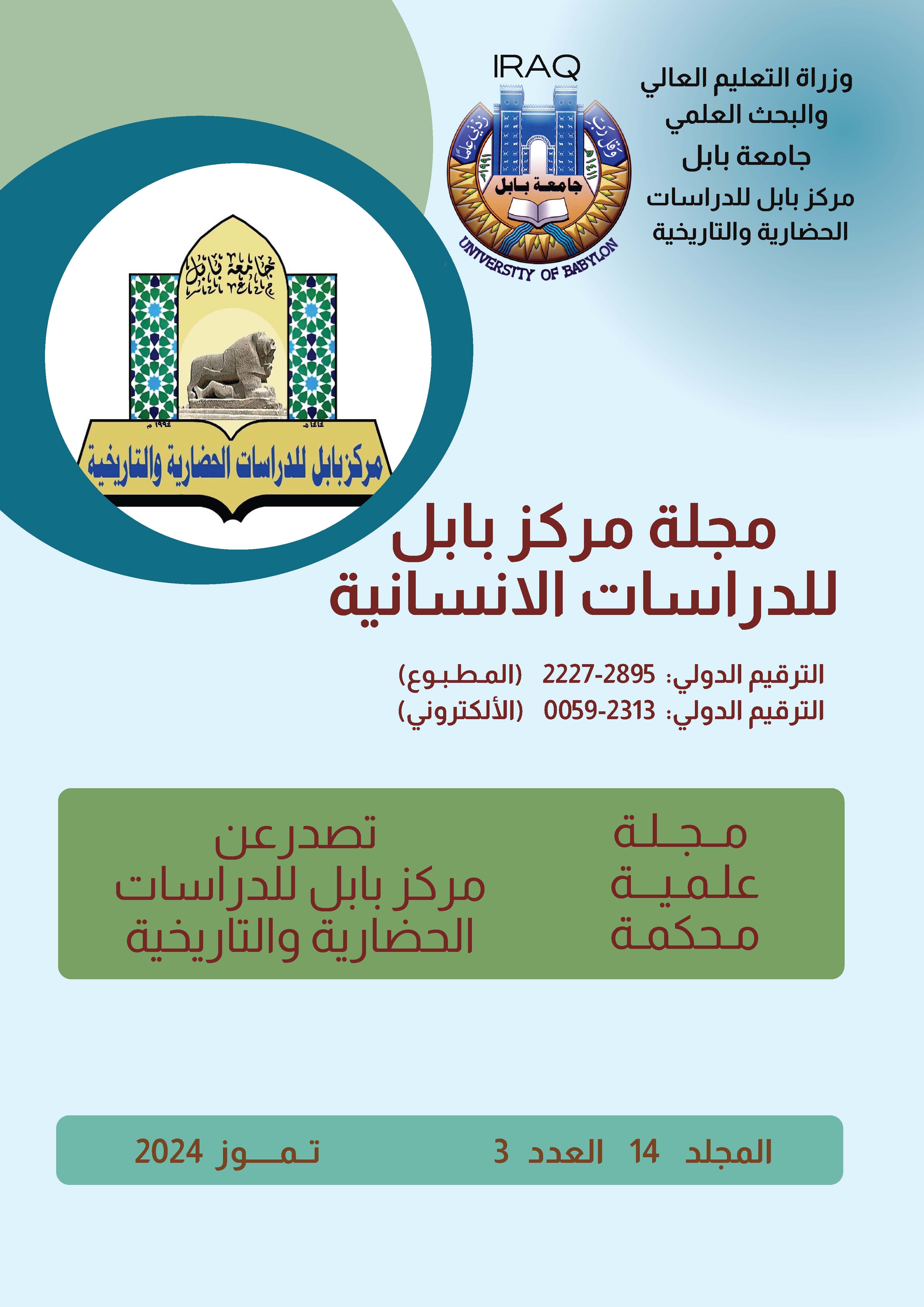Linguistic coexistence In the supplication (Sunnajat al-Raghibin) in Sahifa al-Sajjadiyyah (Semantic grammatical study)
Keywords:
I miss excessive disobedience and tyrannyAbstract
The linguistic accompaniment appears in many places, whether in the Holy Qur’an or in the traditions of supplications and acts of worship, such as the supplication (Munajat al-Raghibin) in Al-Sahifa Al-Sajjadiyyah Al-Kamilah, which is the focus of the research. Among the words that appear together in the Holy Qur’an (disobedience and tyranny, forgiveness and contentment, forgiveness and mercy), they have meanings that are almost inseparable from each other. One of the linguistic associations mentioned in the supplication (Munajat al-Raghibin) is the saying (The Most Merciful of the Merciful), which is one of the attributes of God Almighty. Linguistic coexistence is a linguistic phenomenon in the Arabic language, as it exists in other languages. It may use the term (forgiveness), which is often combined with the term (mercy), which is one of the attributes of the Creator, the Almighty, the Most Honorable. According to the hadith scholars, the word is defined by its conjugation and represents part of the meaning of the word. Although they can be expressed in linguistic terms, linguistic associations play a role in words acquiring special connotations. The phenomenon of linguistic association can be used to deduce the legal rulings mentioned in the Holy Quran. There are many indications from the structures in the Holy Quran, to indicate a specific meaning in Quranic usage, such as the structure (the most merciful of those who leave), (forgiveness and mercy) which is frequently used in the Quranic text and supplication in general, and which indicates in its content the mercy of the sacred self represented by the Almighty, the Most High, His noble status.







